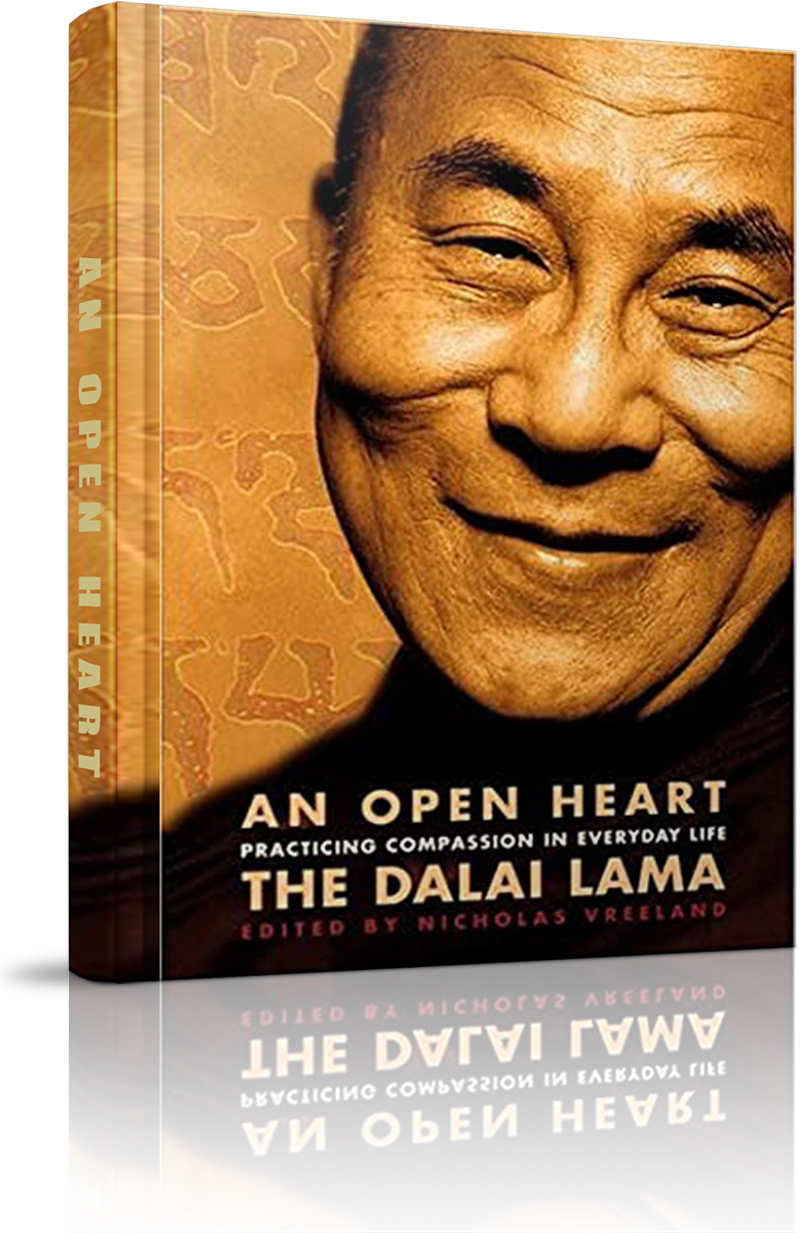Khi ý thức được rằng giá trị của cuộc sống nằm ở chỗ là chúng ta đang sống, ta sẽ thấy tất cả những điều khác đều trở nên nhỏ nhặt, vụn vặt không đáng kể.Tủ sách Rộng Mở Tâm Hồn
Nhẫn nhục có nhiều sức mạnh vì chẳng mang lòng hung dữ, lại thêm được an lành, khỏe mạnh.Kinh Bốn mươi hai chương
Tôi không thể thay đổi hướng gió, nhưng tôi có thể điều chỉnh cánh buồm để luôn đi đến đích. (I can't change the direction of the wind, but I can adjust my sails to always reach my destination.)Jimmy Dean
Trong cuộc sống, điều quan trọng không phải bạn đang ở hoàn cảnh nào mà là bạn đang hướng đến mục đích gì. (The great thing in this world is not so much where you stand as in what direction you are moving. )Oliver Wendell Holmes
Sống chạy theo vẻ đẹp, không hộ trì các căn, ăn uống thiếu tiết độ, biếng nhác, chẳng tinh cần; ma uy hiếp kẻ ấy, như cây yếu trước gió.Kinh Pháp cú (Kệ số 7)
Tôi phản đối bạo lực vì ngay cả khi nó có vẻ như điều tốt đẹp thì đó cũng chỉ là tạm thời, nhưng tội ác nó tạo ra thì tồn tại mãi mãi. (I object to violence because when it appears to do good, the good is only temporary; the evil it does is permanent.)Mahatma Gandhi
Kỳ tích sẽ xuất hiện khi chúng ta cố gắng trong mọi hoàn cảnh.Sưu tầm
Giữ tâm thanh tịnh, ý chí vững bền thì có thể hiểu thấu lẽ đạo, như lau chùi tấm gương sạch hết dơ bẩn, tự nhiên được sáng trong.Kinh Bốn mươi hai chương
Ðêm dài cho kẻ thức, đường dài cho kẻ mệt, luân hồi dài, kẻ ngu, không biết chơn diệu pháp.Kinh Pháp cú (Kệ số 60)
Đừng chọn sống an nhàn khi bạn vẫn còn đủ sức vượt qua khó nhọc.Sưu tầm
Bậc trí bảo vệ thân, bảo vệ luôn lời nói, bảo vệ cả tâm tư, ba nghiệp khéo bảo vệ.Kinh Pháp Cú (Kệ số 234)
Trang chủ »» Danh mục »» SÁCH ANH NGỮ HOẶC SONG NGỮ ANH-VIỆT »» An Open Heart »» Chapter 6: The vast and the profound: Two aspects of the Path »»
An Open Heart
»» Chapter 6: The vast and the profound: Two aspects of the Path
 Xem Mục lục
Xem Mục lục  Vietnamese || Đối chiếu song ngữ
Vietnamese || Đối chiếu song ngữ
- none
- Introduction
- Chapter One: The desire for happiness
- Chapter Two: Meditation - A beginning
- Chapter 3: The material and immaterial world
- Chapter 4: Karma
- Chapter 5: The afflictions
- »» Chapter 6: The vast and the profound: Two aspects of the Path
- Chapter 7: Compassion
- Chapter 8: Meditating on compassion
- Chapter 9: Cultivating equanimity
- Chapter 10: Bodhicitta
- Chapter 11: Calm abiding
- Chapter 12: The nine stages of calm abiding meditation
- Chapter 13: Wisdom
- Chapter 14: Buddhahood
- Chapter 15: Generating Bodhicitta
- Afterword (Khyongla Rato and Richard Gere)
- none

Thus far, I have largely concentrated on describing “the vast.” This practice is often referred to as the “method” aspect and refers particularly to the opening of our heart, of our compassion and love, as well as those qualities such as generosity and patience that extend from a loving heart.
Here our training involves enhancing these virtuous qualities while diminishing nonvirtuous tendencies.
What does it mean to open the heart? First of all, we understand that the idea of the heart is a metaphorical one. The heart is perceived in most cultures to be the wellspring of compassion, love, sympathy, righteousness, and intuition rather than merely the muscle responsible for circulating blood through the body. In the Buddhist worldview, both aspects of the path, however, are understood to take place in the mind. Ironically, the Buddhist view is that the mind is located in the middle of the chest. An open heart is an open mind. A change of heart is a change of mind. Still, our conception of the heart provides a useful, if temporary, tool when trying to understand the distinction between the “vast” and “profound” aspects of the path.
The other aspect of practice is the “wisdom” aspect, also known as “the profound.” Here we are in the realm of the head, where understanding, analysis, and critical perception are the ruling notions. In the wisdom aspect of the path, we work at deepening our understanding of impermanence, the suffering nature of existence, and our actual state of selflessness. Any one of these insights can take many lifetimes to fully fathom. Yet it is only by recognizing the impermanent nature of things that we can overcome our grasping at them and at any notion of permanence. When we lack an understanding of the suffering nature of existence, our attachment to life increases. If we cultivate our insight into the miserable nature of life, we overcome that attachment.
Ultimately, all our difficulties arise from one basic illusion. We believe in the inherent existence of ourselves and all other phenomena. We project, and then cling to, an idea of the intrinsic nature of things, an essence that phenomena do not actually possess. Let us take a simple chair as an example. We believe, without fully recognizing this belief, that there is such a thing as an essential chairness, a quality of a chair that seems to exist among its parts: the legs, seat, and back. In the same way, we each believe there to be an essential and continuous “me” pervading the physical and mental parts that make up each of us. This essential quality is merely imputed by us; it does not actually exist.
Our grasping at this inherent existence is a fundamentally mistaken perception that we must eliminate through meditation practices of the wisdom path. Why? Because it is the root cause of all our misery. It lies at the core of all our afflictive emotions.
We can abandon this illusion of an essential quality only by cultivating its direct antidote, which is the wisdom that realizes the nonexistence of that quality. Again, we cultivate this profound wisdom, as we cultivate humility in order to uproot our pride. We must first become familiar with the improper way we perceive ourselves and other phenomena; we can then cultivate a correct perception of phenomena. Initially, this perception will be intellectual, as in the kinds of understanding one achieves through study or listening to teachings. To deepen this perception requires the more sustained meditation practices described in Chapter 11, “Calm Abiding,” Chapter 12, “The Nine Stages of Calm Abiding Meditation,” and Chapter 13, “Wisdom.” Only then is the perception able to truly affect our view of ourselves and other things. By directly realizing our lack of an inherent nature, we uproot the very basis of the self-grasping that lies at the core of all our suffering.
Developing wisdom is a process of bringing our minds into accordance with the way things really are. Through this process we gradually remove the incorrect perceptions of reality we have had since beginningless time. This is not easy. Merely understanding what is meant by the inherent or intrinsic existence of things demands much study and contemplation. Recognizing that things have no inherent existence is a profound insight, requiring years of study and meditation. We must begin by familiarizing ourselves with these notions, which we shall explore further later in this book. For the moment, however, let us return to the method aspect in order to explore the idea of compassion.
MUA THỈNH KINH SÁCH PHẬT HỌC
DO NXB LIÊN PHẬT HỘI PHÁT HÀNH
Mua sách qua Amazon sẽ được gửi đến tận nhà - trên toàn nước Mỹ, Canada, Âu châu và Úc châu.
Quý vị đang truy cập từ IP 216.73.216.157 và chưa ghi danh hoặc đăng nhập trên máy tính này. Nếu là thành viên, quý vị chỉ cần đăng nhập một lần duy nhất trên thiết bị truy cập, bằng email và mật khẩu đã chọn.
Chúng tôi khuyến khích việc ghi danh thành viên ,để thuận tiện trong việc chia sẻ thông tin, chia sẻ kinh nghiệm sống giữa các thành viên, đồng thời quý vị cũng sẽ nhận được sự hỗ trợ kỹ thuật từ Ban Quản Trị trong quá trình sử dụng website này.
Việc ghi danh là hoàn toàn miễn phí và tự nguyện.
Ghi danh hoặc đăng nhập
... ...


 Trang chủ
Trang chủ










